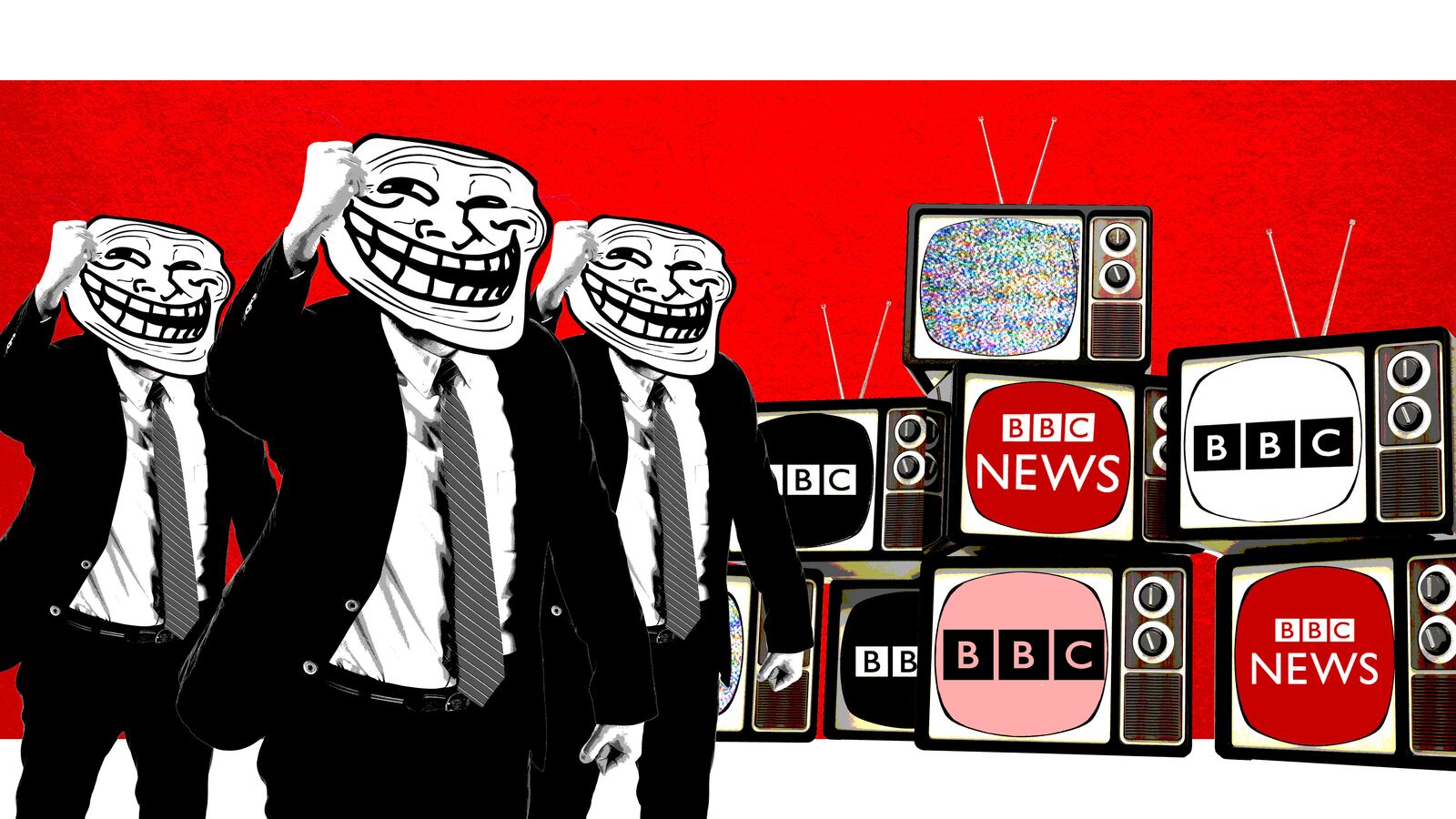Welcome to Rabbit Hole, a breaking-news analysis that helps you get smart on the one story everyone’s obsessing over—for Beast Inside members only.
Facebook just nuked thousands of Iranian and Russian troll accounts for lying about who they were and what they were doing. But the latest cull didn’t just take out your usual lame propaganda meme dumpers. One of the accounts dedicated its efforts to harassing reporters with much more serious intimidation tactics from Tehran. So who’s behind the account and what was it up to?
Coordinated authentic harassment: A quick glance at the content examples Facebook used in its announcement doesn’t reveal too much outside what you’d expect from sock puppet propaganda accounts. There are the usual anti-Israel and anti-Western memes, accounts that promote flattering content about Iran’s Supreme Leader, and fist-bumps to Iranian allies like Venezuela.
But one account in particular took a different approach. The Instagram account @bbcgraphy yanked the BBC News logo but it’s pretty clear that it wasn’t trying to pass itself off as an authentic BBC account. Quite the opposite. @bbcgraphy dedicated its content to targeting the BBC Persian language service’s content in general and its reporters in particular.
The account owners behind @bbcgraphy went on BBC Persian reporters’ personal Instagram and Twitter pages to trash reporters for their posts on everything from politics to their vacation time to their 2009 vs 2019 10-year challenge selfies.
When BBC Afghan reporter Sattar Saeedi posted the results of a DNA test on his ancestry page showing his heritage was 72 percent Persian, @bbcgraphy screenshot the post and mocked him with comments like “The BBC's Afghan Officer Wants to Become Iranian!” It’s consistent with other crude attempts in other posts that drew attention to Saeedi’s residence in the U.K. to paint the BBC Persian service staff as foreign hirelings supposedly doing the bidding of Westerners without authentic identities of their own.
In other instances, the @bbcgraphy account tried to instigate trolls by highlighting dustups with prominent BBC Persian service reporters on Twitter. When reporters engaged or pushed back—as when Bahman Kalbasi stood up to one troll—@bbcgraphy splashed it on its Instagram account to decry a "shameless insult of a BBC reporter to Iranians."
IRL complement: Coordinated harassment on social media is hardly something novel. On platforms like Twitter, it’s positively rampant. While the now-cancelled troll accounts may seem like the tamer end of the spectrum of social media harassment, they’re altogether more troubling because they complemented a much more serious campaign being waged by the Iranian government against the BBC News Persian language service in real life.
Iran has arrested and threatened family members of BBC employees still living in Iran. In one case, Iran arrested an unnamed BBC journalist’s sister and threw her in solitary confinement while anonymous messages on Skype, sent to her sibling in London, promised a release if she quit the news channel. The harassment campaign has grown so severe that the BBC complained to the UN independent investigator on freedom of expression about a “sustained campaign of harassment and persecution.”
Attribution: Facebook says it was able to attribute the @bbcgraphy account to individuals in Iran but beyond that, the company is as yet unable to conclude anything further about the account’s ownership. A Facebook spokesperson said the company can’t say whether or not the account was linked to state actors but said that it is “continuing to investigate.”
Still, the campaign comes amidst a background of state-linked actors in Iran increasingly using social media disinformation and hacking campaigns in the way we’ve seen other state actors like Russia employ them. In August 2018, Facebook took down a similar network of sock puppet accounts on a tip from cybersecurity firm FireEye. The company found that at least some of the fake news outlets involved in the campaign were tied to PressTV, Iran’s state-run English language propaganda channel.
In February, the Justice Department also unsealed an indictment against former Air Force Office of Special Investigations agent Monica Witt. She defected to Iran and allegedly gave up the classified goods on her former coworkers and helped Iranian hackers target them with social media sock puppet accounts.
Motive, precedent, and opportunity alone don’t necessarily mean the Iranian government was behind the latest crop of social media sock puppets. But the modus operandi does raise questions about whether Iran could have augmented its campaign against BBC reporters with a social media harassment component.






